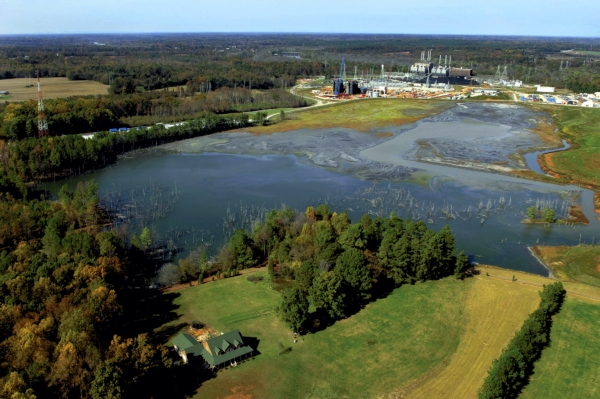Editorial: Good plan for Buck coal ash
Published 12:00 am Sunday, October 9, 2016

- A November 2010 aerial photograph of the first holding basin that was being used to hold the coal ash from the coal-fired Buck Steam plant seen in the background. JON C. LAKEY / SALISBURY POST
The excavation and recycling plan Duke Energy announced last week for the three coal ash ponds at Buck Station in Rowan County is a victory for residents and environmentalists, as well as a good solution for Duke.
The plan allays fears that the utility would simply cap 6 million tons of ash in place. Instead, the material will be dug out of the ground and recycled into an ingredient of concrete. Once excavation is complete, this should remove the threat of coal ash contaminating local groundwater and the Yadkin River.
The Yadkin Riverkeeper and Waterkeeper Alliance credit their federal lawsuit against Duke with bringing about the Buck plan. Duke claims the plan was a business decision that happened to make the lawsuit moot, but clearly the utility was feeling pressure from all sides — the state, environmentalists, residents and investors. The tipping point is less important than the effectiveness of the plan.
If this works at Buck, could Duke use the same setup at other coal ash sites? Duke discourages that leap of logic. Spokesperson Erin Culbert said Friday that the Buck site met important technical criteria for the recycling unit that other sites may not match, such as interstate access, proximity to the Charlotte ash market, small volume compared to other sites and quality of ash. “We were enthusiastic that Buck was a good fit for such an opportunity,” Culbert said.
Residents of the Dukeville area around Buck are relieved though weary. Their lives forever changed after the state sent out do-not-drink letters about their well water in the spring of 2015. The people of Dukeville have been relying on bottled water ever since. Frustration with Duke Energy, Gov. Pat McCrory and state health and environmental officials grew almost daily. When the county finally runs water lines to the neighborhood, residents will have clean water — and monthly water bills to go with it.
Dukeville residents’ relief is also tempered by the knowledge that people living near Duke’s other old coal-burning plants still don’t know how the company will deal with coal ash ponds in their communities. Duke says setting up recycling operations at all the plants is not practical. Deadlines are too tight, according to Culbert. Also, the material would flood the ash market.
One station at a time — that appears to be the way Duke is working out solutions to its costly coal ash challenges. The plan for Buck looks promising. The residents of Dukeville and their allies did not exactly slay a Goliath, but they proved to be determined advocates that the nation’s largest power company could not ignore.


